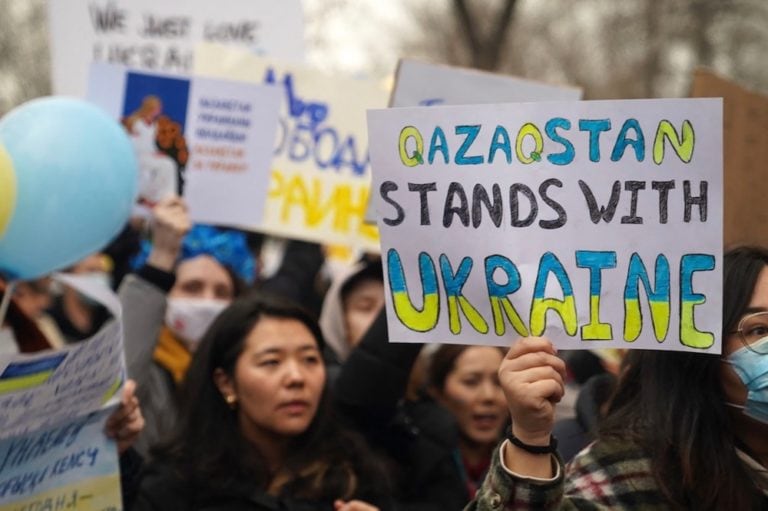(WiPC/IFEX) – The Writers in Prison Committee of International PEN is delighted by the 8 May 2007 news that journalist and human rights defender, Umida Niyazova, who was sentenced to seven years in prison on 1 May 2007, has had her sentence reduced to a suspended term by an appeal court. According to a report […]
(WiPC/IFEX) – The Writers in Prison Committee of International PEN is delighted by the 8 May 2007 news that journalist and human rights defender, Umida Niyazova, who was sentenced to seven years in prison on 1 May 2007, has had her sentence reduced to a suspended term by an appeal court. According to a report on Radio Free Europe/Radio Liberty, she has been released.
On 1 May, Sergely District Court in Tashkent, following a closed trial barred to the press and public, sentenced Umida Niyazova, age 32, to seven years in prison. She was convicted on charges of smuggling banned materials into Uzbekistan, using foreign aid to distribute material that threatens Uzbek national security, and illegally crossing the border with Kyrgystan. These accusations are clearly linked to Niyazova’s legitimate work as a human rights activist and journalist. Those related to smuggling and distribution refer to her reports on human rights abuses, notably in on the May 2005 Andijon massacre. She is a reporter on politics and human rights for the Central Asia website, Oasis, as well as for the Moscow-based Center for Journalism in Extreme Situations. She has also worked for Human Rights Watch, Radio Free Europe/Radio Liberty, Freedom House and Internews.
Niyazova’s arrest and subsequent sentence was heavily criticised internationally, with appeals of protest made by governments, the European Union, OSCE as well as human rights organisations world wide.
For more on her case see: http://www.internationalpen.org.uk/index.php?pid=33&aid=599&type=current
However, Niyazova’s release is not unconditional. Radio Free Europe/Radio Liberty reports that she will live under surveillance for three years, and is required to report regularly to the police.
International PEN welcomes the news of the release of Umida Niyazova, yet remains concerned that her freedom is not unconditional. It considers the sentence and remaining restrictions against her to be in direct contravention of the International Covenant on Civil and Political Rights to which Uzbekistan is committed, and which specifically guarantees the right to freedom of expression. International PEN calls for the lifting of all restrictions against Umida Niyazova and for an end to the pattern of arrest and convictions against all writers and journalists in denial of their rights as defined by international standards safeguarding human rights.
RECOMMENDED ACTION:
Send appeals to Uzbek authorities:
– welcoming news of Umida Niyazova’s release
– expressing concern that the release was not unconditional and that she will reportedly be subject to surveillance and required to report to the police regularly, and urging that these restrictions be lifted
– pointing out that arrests and sentences against those whose only act is to write and publish articles that are critical of the authorities, are in direct violation of the right to freedom of expression as guaranteed by Article 19 of the International Covenant on Civil and Political Rights to which Uzbekistan is a State Party
APPEALS TO:
President Islam Karimov
Rezidentsia prezidenta, ul. Uzbekistanskaia 43
700163 Tashkent
Uzbekistan
Fax: + 998 71 139 5325
E-mail: presidents_office@press-service.uz
Salutation: Dear President Karimov
Minister of Internal Affairs Bakhodir Matliubov
Ministerstvo vnutrennikh del RU, ul. Novruz 1
700029 Tashkent
Uzbekistan
Fax: + 998 71 133 89 34
Salutation: Dear Minister Matliubov
Copies to:
Human Rights Ombudsman Ms. Saroyya Rashidova
1 Xalglar Do’stligi Ko’chasi
Tashkent 700035
Uzbekistan
Fax +998 71 139 8555 / 8071
E-mail: ombudsman@parliament.gov.uz
Please send appeal to the diplomatic representative of Uzbekistan in your own country.
Please contact the International PEN WiPC if sending appeals after 24 May 2007.
Please copy appeals to the source if possible.


